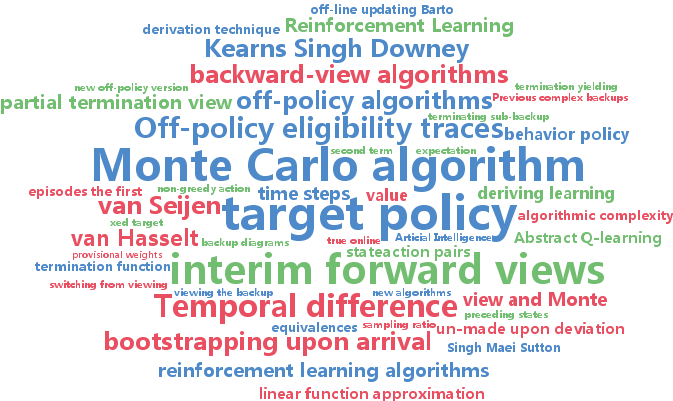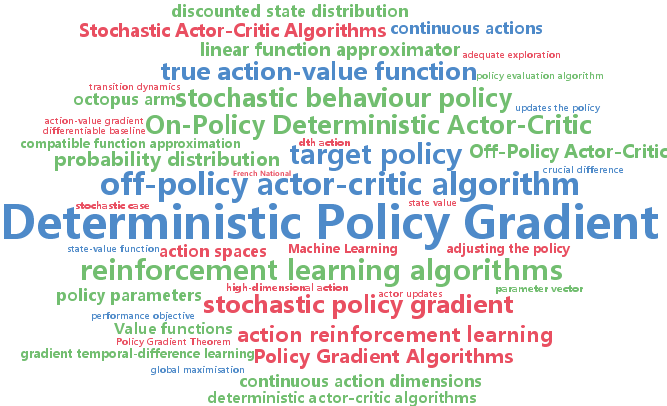target policy
-
Rich Sutton and Ashique Rupam Mahmood and Doina Precup and Hado van Hasselt
A new Q(lambda) with interim forward view and Monte Carlo equivalence (pdf)
Q-learning, the most popular of reinforcement learning algorithms, has always included an extension to eligibility traces to enable more rapid learning and improved asymptotic performance on non-Markov problems. The lambda parameter smoothly shifts on-policy algorithms such as TD(lambda) and Sarsa(lambda) from a pure bootstrapping form (lambda=0) to a pure Monte Carlo form (lambda=1). In off-policy algorithms, including Q(lambda), GQ(lambda), and off-policy LSTD(lambda), the lambda parameter is intended to play the same role, but does not; on every exploratory action these algorithms bootstrap regardless of the value of lambda, and as a result they fail to approximate Monte Carlo learning when lambda=1. It may seem that this is inevitable for any online off-policy algorithm; if updates are made on each step on which the target policy is followed, then how could just the right updates be `un-made' upon deviation from the target policy? In this paper, we introduce a new version of Q(lambda) that does exactly that, without significantly increased algorithmic complexity. En route to our new Q(lambda), we introduce a new derivation technique based on the forward-view/backward-view analysis familiar from TD(lambda) but extended to apply at every time step rather than only at the end of episodes. We apply this technique to derive first a new off-policy version of TD(lambda), called PTD(lambda), and then our new Q(lambda), called PQ(lambda).
-
David Silver and Guy Lever and Nicolas Heess and Thomas Degris and Daan Wierstra and Martin Riedmiller
Deterministic Policy Gradient Algorithms (pdf)
In this paper we consider deterministic policy gradient algorithms for reinforcement learning with continuous actions. The deterministic policy gradient has a particularly appealing form: it is the expected gradient of the action-value function. This simple form means that the deterministic policy gradient can be estimated much more efficiently than the usual stochastic policy gradient. To ensure adequate exploration, we introduce an off-policy actor-critic algorithm that learns a deterministic target policy from an exploratory behaviour policy. Deterministic policy gradient algorithms outperformed their stochastic counterparts in several benchmark problems, particularly in high-dimensional action spaces.

